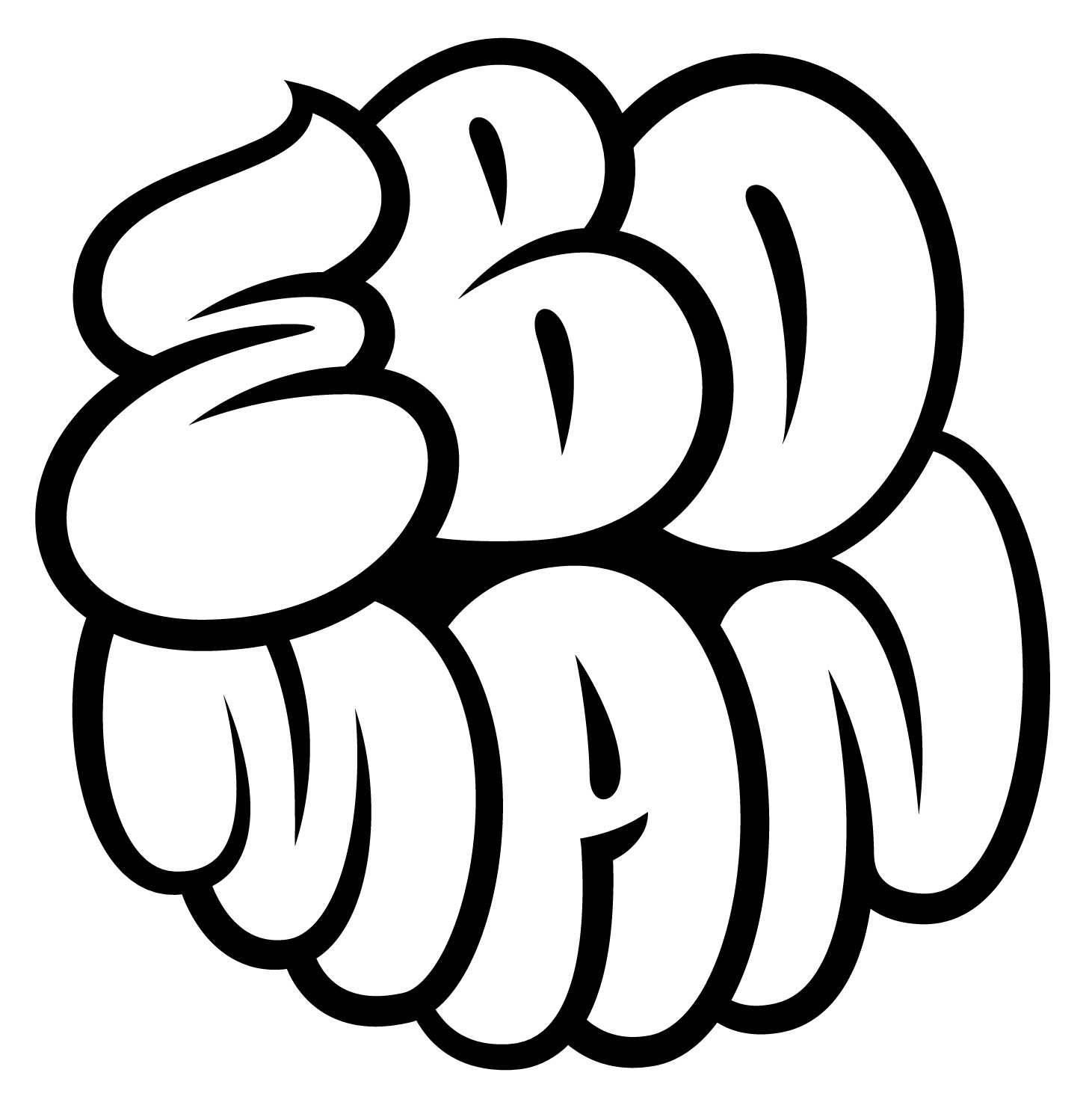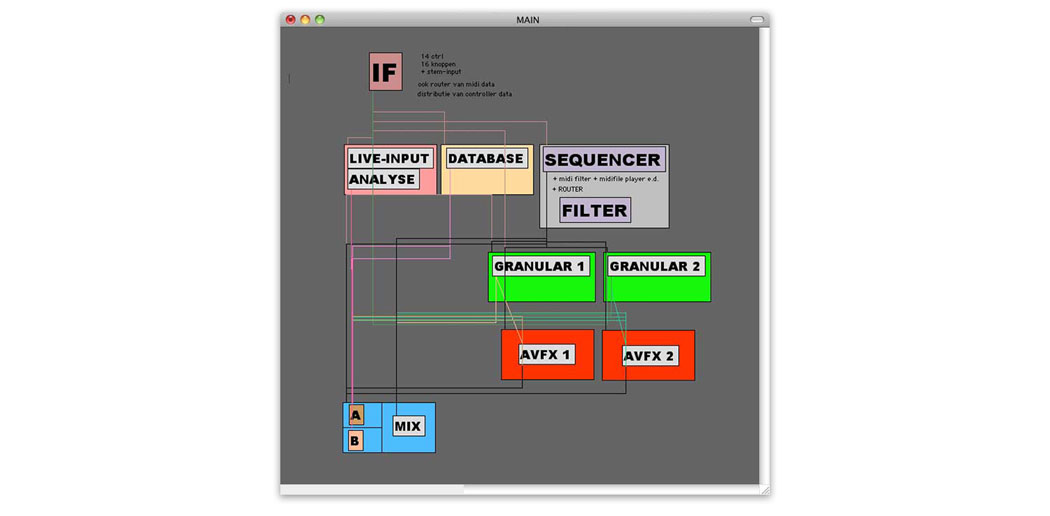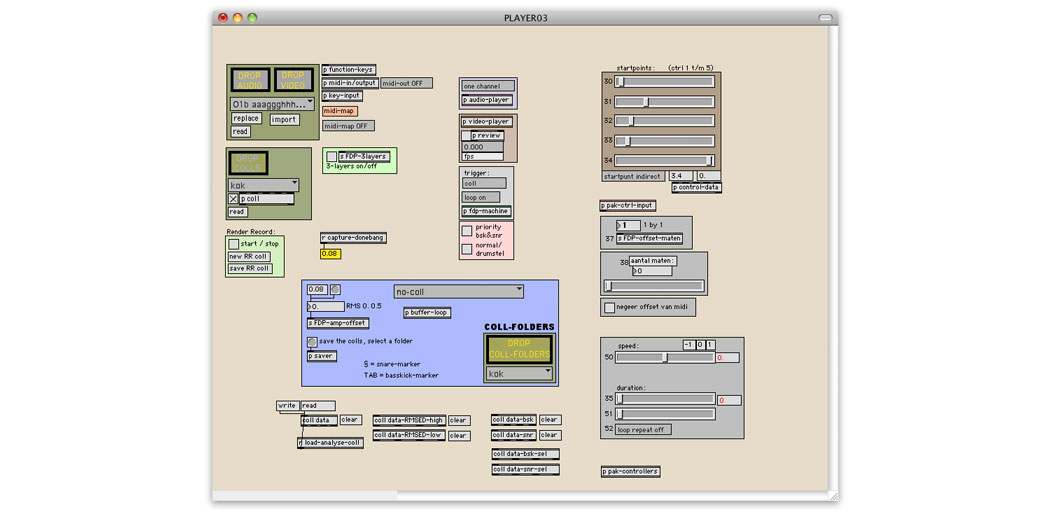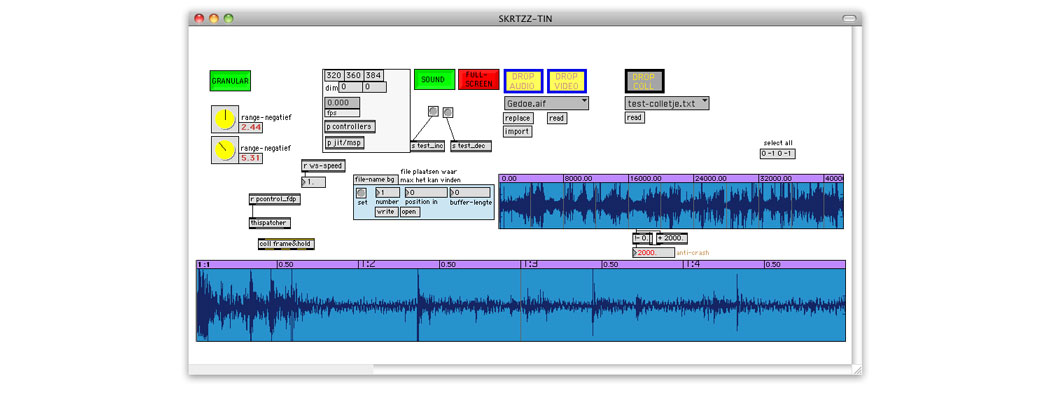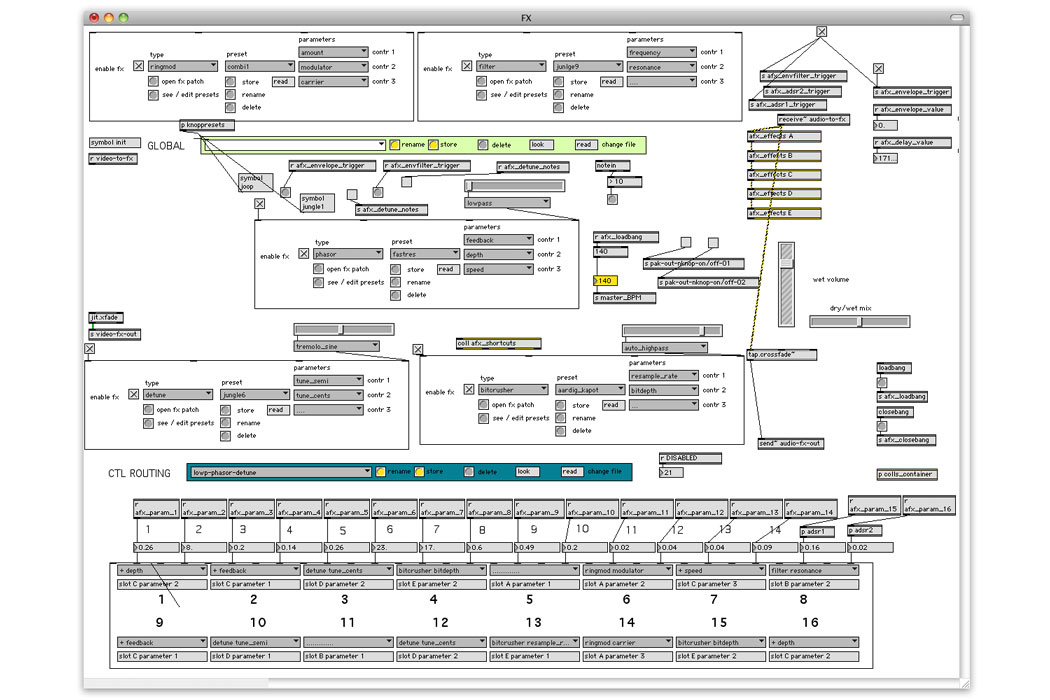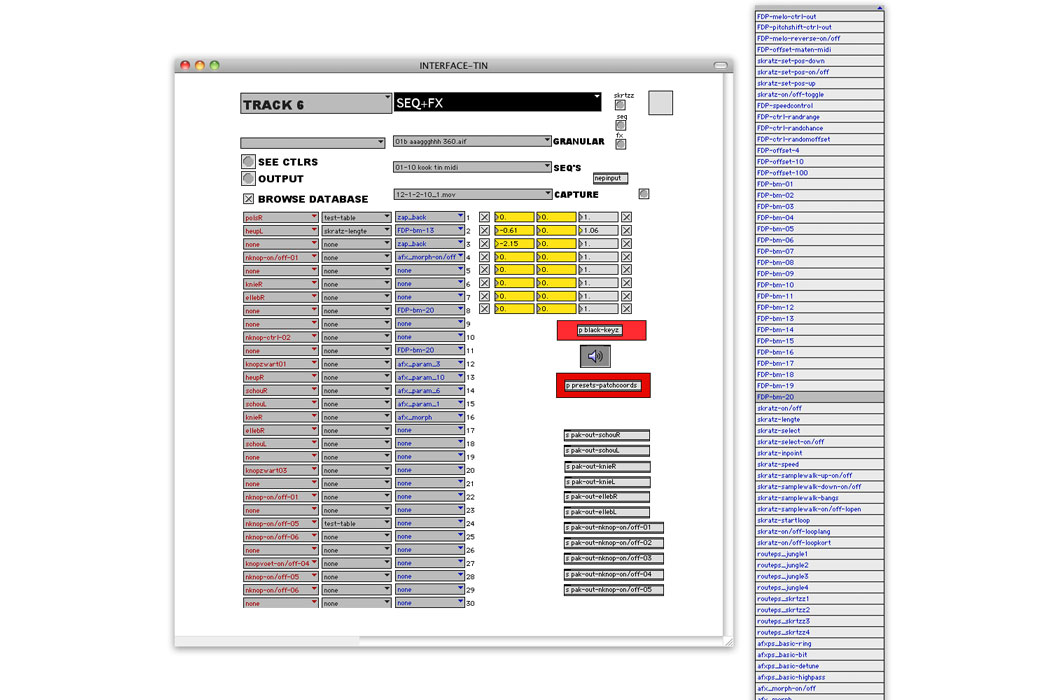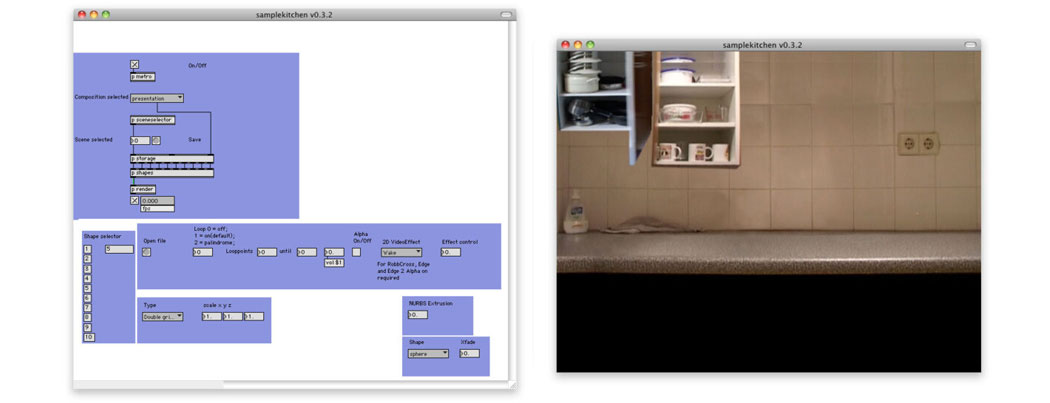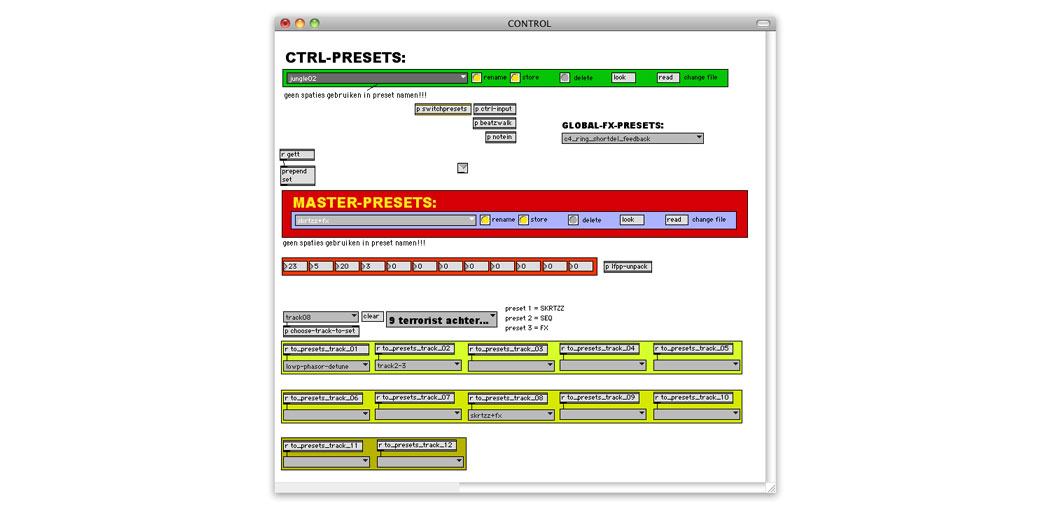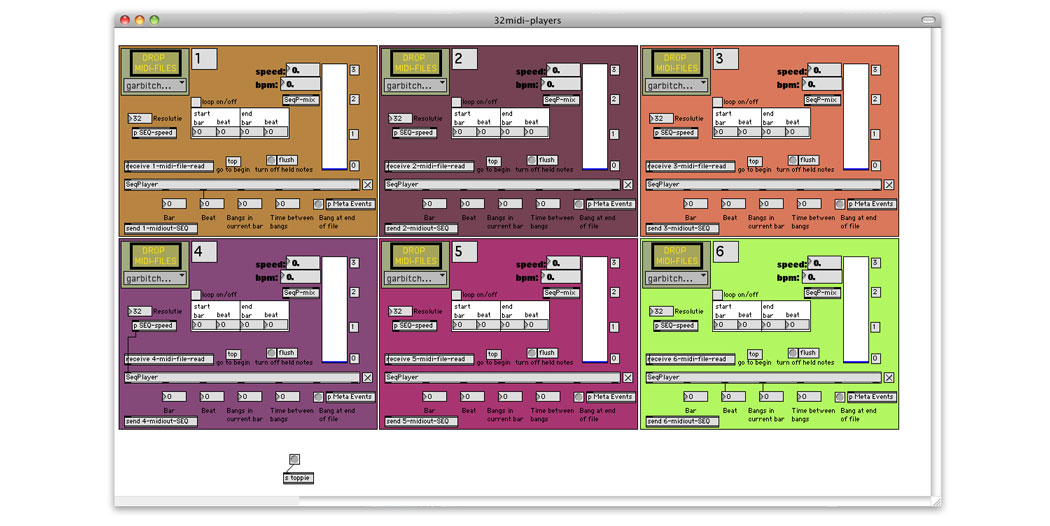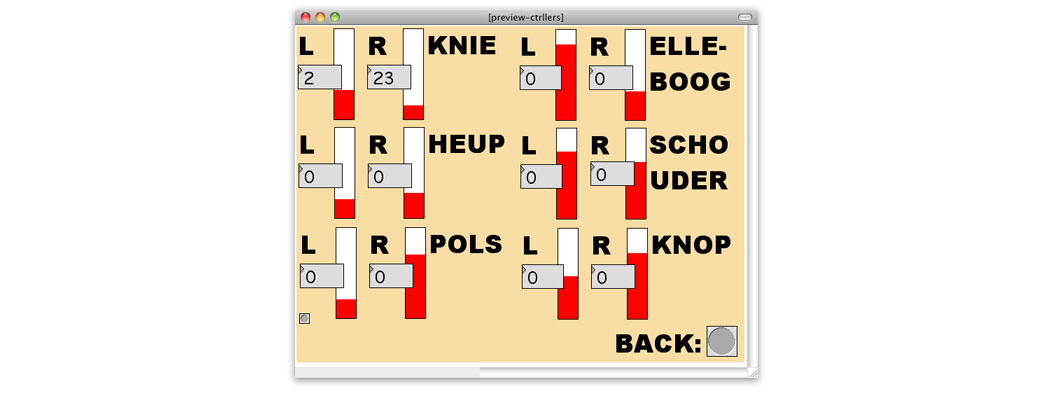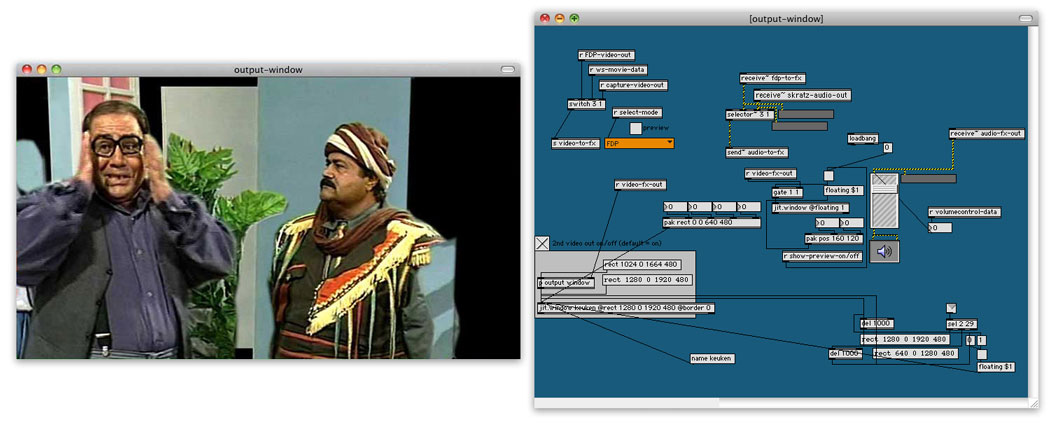SenS I (2004) turns Logic Pro (popular music software) into an audio-visual instrument. The aim of my software is to create the ultimate audio-visual instrument that merges the creative processes of making music and making visuals into one, unified creative process. Ideal for audio-visual and visual music artists like me. SenS I was followed by SenS II in 2005.
About
SenS I was my first attempt to develop a full functional audio-visual instrument. It combines the skrtZz pen, the Frame Drummer Pro, the DVJ mixer and other AV instruments into one creative AV system.


Because hardware in 2004 was not powerful enough to play, mix, distort and skrtZz multiple videos and run Logic Pro at the same time, SenS I ran on serveral laptops controlled by a ‘master’ computer and/or up to three SenSorSuits. The master computer ran Logic Pro and communicated with the laptops through MIDI.

Main features
Flexible video playback. SenS I is a creative instrument, so expressiveness is important. Therefore all creative features work in real-time and are very flexible. For video playback we developed three very flexible video players to manipulate the timing and pitch of videos. Cutting, slicing, triggering, skrtZz-ing, scrubbing, stretching, pitching, speeding up/down can be done with MIDI controls and MIDI notes.
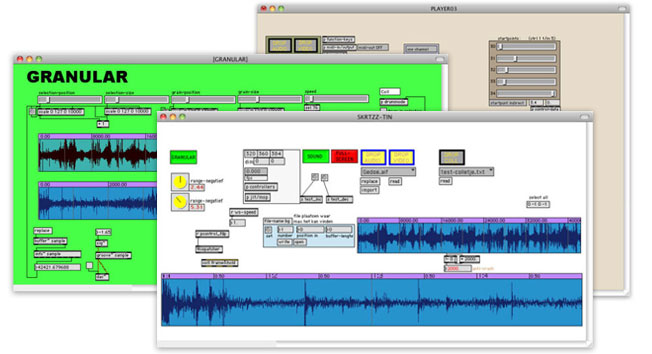
Audio-visual effects. Audio-visual effects, that manipulate visuals and sounds at the same time, play an important part in my art. For SenS I we developed a flexible system to combine custom build audio-visual effects to distort sounds/visuals or to create completely new audio-visuals.
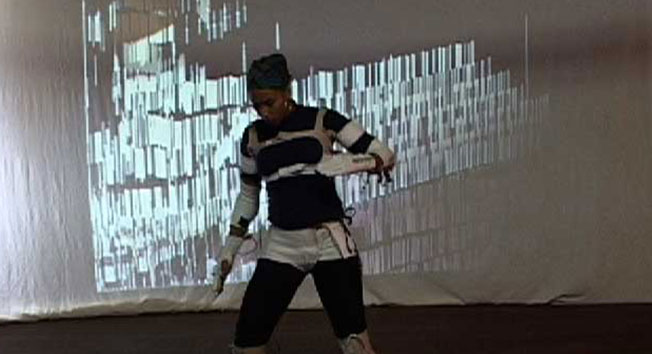
Live video sampling. SenS I had the ability to make video recordings live and use them directly in the show. This was a successful concept that I expanded in the next generations of SenS.
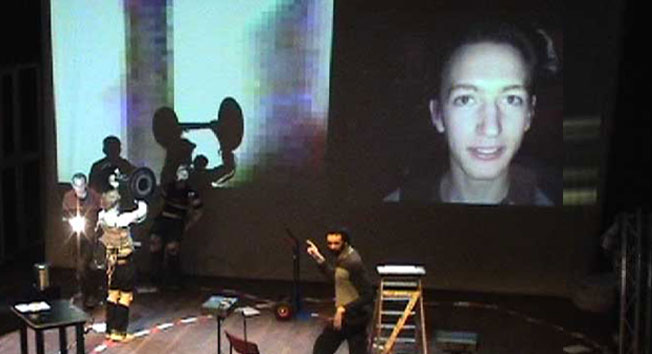
Interactive sequencer. SenS I included a sequencer to play and mix MIDI loops and use MIDI filters to create new MIDI patterns live. Logic Pro didn’t have the option to play with MIDI patterns live (Ableton Live does, with Session View), so we had to add that for live improvisation.
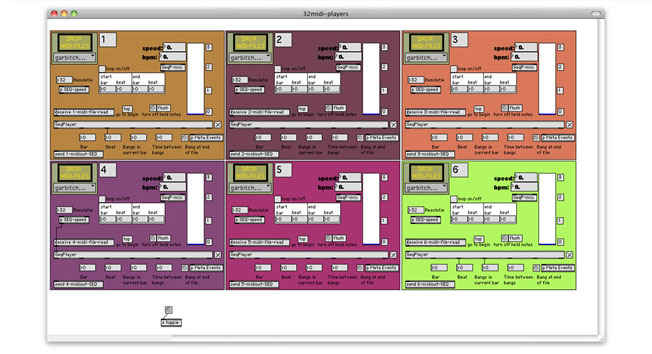
SenSorSuit. I have been using a motion tracking suit for my performances since 1999. I completely rebuild my old SenSorSuit together with my father and Chris Heijens for SenS I. SenS I supported three SenSorSuit inputs. Read more about the SenSorSuit 2.0 here.
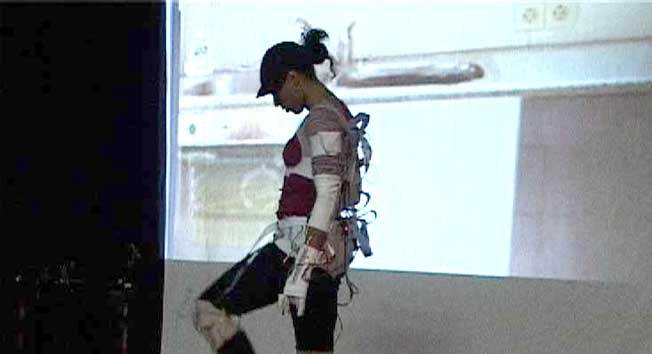
Projects
SenS I is used for the Gedoe en Gedaan theatre show and the Group Composition project and for a performance at the Dutch Electronic Art Festival. SenS I was a great learning experience, but as an instrument it was too unstable and soon replaced by SenS II.
Overview
FX Editor is used to combine real-time audio and visual effects to design new sounds and visuals. This editor is also used to define what parameters of these audio-visual effect stacks can be controlled live by Logic Pro or another interface like the SenSorSuit. This Editor is the predecessor of AVblock and EboSuite’s eFX and eFX-ISF plug-ins.
The Interface Editor is used to map any parameter from SenS I to live controllers, like the SenSorSuit, a Drumkit, the skrtZz board, skrtZz pen or Logic Pro.
Just like the Frame Drummer Pro, SenS I was capable of recording video live and use these recordings in a performance directly. A great way to interact with the audience and create audio-visual compositions live. With SenS I it was pretty risky to use this feature, because it could easily lead to a computer crash, but SenS IV was optimized for this live video sampling concept, which became very successful in 2008.
The Sample Kitchen is used to store visual arrangements and visual effects. An arrangement is called a ‘decor’. This software later evolved into the Decor Builder. The Decor Builder was 3D video mix and real time motion graphics software, part of SenS III, SenS IV and SenSei, that I used for many projects and shows.
This window shows the incoming data from the SenSorSuit to monitor the suit’s performance.
History of SenS
SenS I has a long history, starting in the 1980’s and is the result of many experiments and prototypes, like the 1995 video sampler, EboNaTor, SenSorSuit, Frame Drummer Pro, skrtZz pen and the DVJ mixer.
SenS I was followed by SenS II, SenS III, SenS IV, SenSei, Interactive Tracks, DVJ Mixer 3.0 and EboSuite.
The main purpose of starting EboStudio and the SenS project was to create the ideal audio-visual instrument, and to make that instrument available for everybody. This eventually led to the release of EboSuite in 2017.
Team
Produced and developed by:
- Rob Donkers
- Jeroen Hofs
- Thijs Koerselman
- Aart Muis
